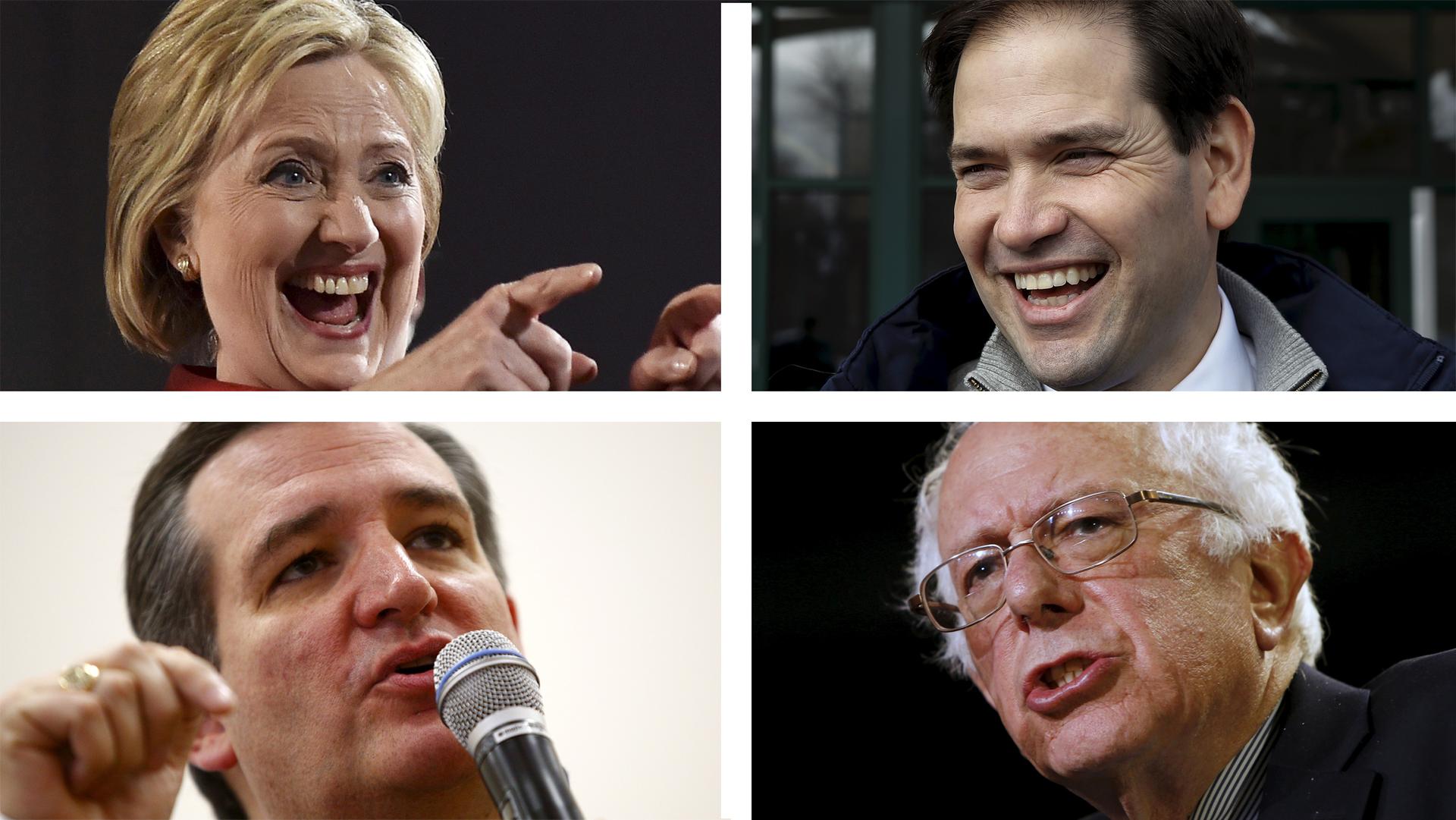In this era of identity, are we actually voting less along identity lines?
Clockwise from top left, any of these four could be the US' first female, Latino, Jewish or Latino president.
Identity politics. You might read about this in think pieces and academic journals. You might experience it when politicians vie for "the Latino vote" or "the Black vote."
Demographics played a big part in the 2008 presidential election: President Barack Obama's landslide victory was accomplished with a majority of the minority vote. This time around, the nuances of generational and cultural divides might split that minority vote in many different ways.
Mexican American Leo Murrieta is a 29-year-old precinct captain for Hillary Clinton's campaign in Nevada. He's not campaigning for Ted Cruz or Marco Rubio.
"I know [that's] the easy assumption," he says. "The reality is that those two are candidates who have long forgotten what it means to be Latino in this country, and to struggle."
Voter loyalty to candidates of similar background or experience isn't as strong a trend this election year, it seems.
We reported about women who aren't voting for Clinton because they'd like a female president — and it's not just young women. Professor Charlotte Bunch, 71, who runs a women's leadership center at Rutgers University, told us some of her female peers "who are feminists" support Bernie Sanders.
The Los Angeles Times reported on Clinton and Sanders' campaigns' dispute about who won the Latino vote in the Nevada primary.
Candidates want to show their constituencies are diverse, but in doing so they might simplify the issue of diversity. Murrieta isn't with Clinton's campaign because he is interested only in "Latino issues."
"I'm really concerned about workers' rights," he says. "Taking care of medicare and Social Security for my parents."
His mother was diagnosed with cancer a few years ago and his father suffered a stroke and aneurysm in 2001. These interests transcend ethnicity.
But at the same time, there are a few "firsts" that could come out of the 2016 presidential election: Hillary Clinton could become the first female president. Bernie Sanders could become the first Jewish president. Ted Cruz or Marco Rubio could become the first Hispanic president (although that's debatable to some).
Any of those would be historic. And each of those candidates has alluded to the significance of that at some point. But media report after media report, the idea that voters of one group would back the candidate most like them seems less likely.
Rutgers' Bunch says Sanders "is appealing to people who feel like we need a break, a change in our political system."
And Jacquelyn Gray, a commenter on our site, thinks Latinos don't care about Cruz or Rubio's race: "These guys may share some geo-genetic material with other Hispanics, but their stated policies would likely further harm the interest of middle and working class folks and we know it. Same with some other candidates of color like Ben Carson, etc."
NPR's Code Switch recently started a conversation about our obsession with identity. But our desire to define our identities seems to stop, at least for some, at the ballot box.
